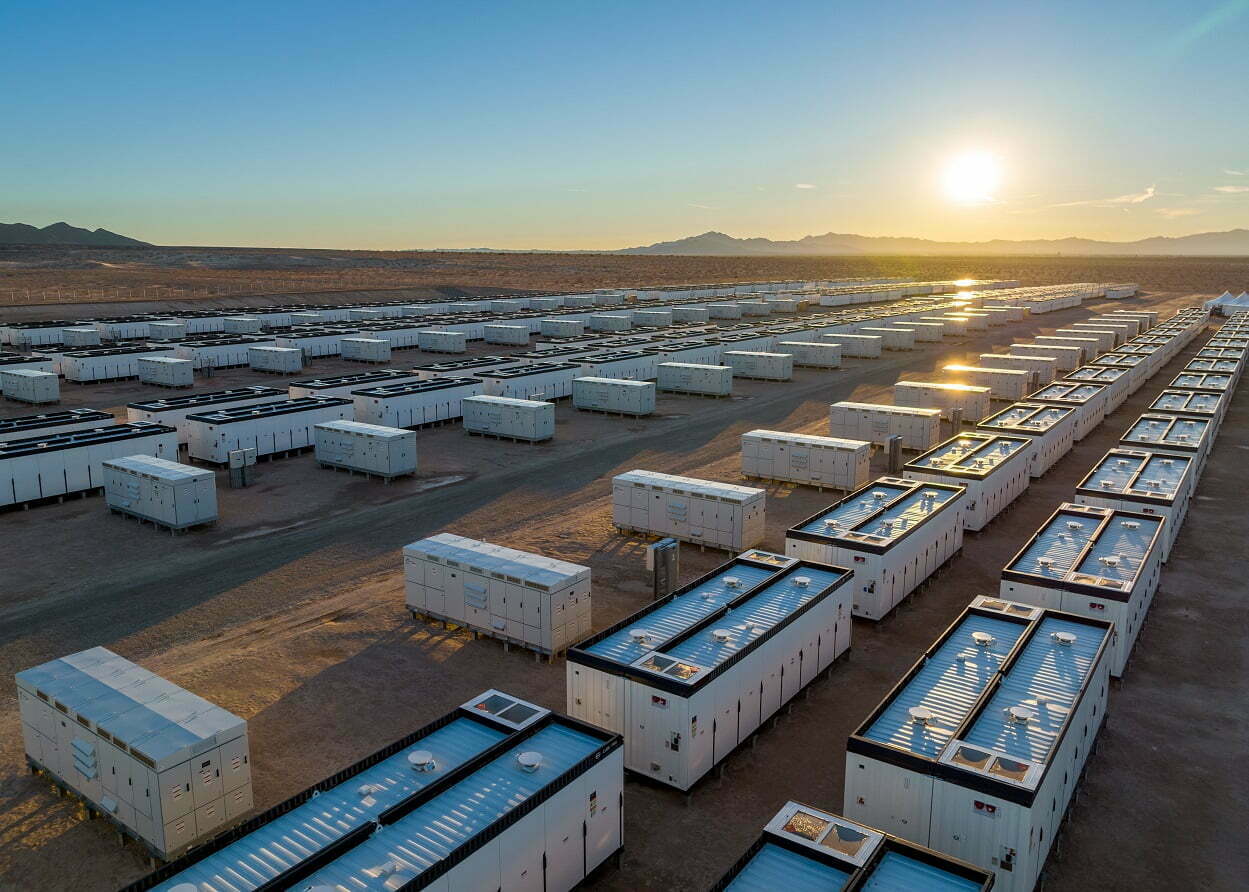
The funding comprises a US$249 million construction and term loan, US$163 million tax equity bridge loan, and US$101 million letter of credit facility.
Banks Mitsubishi UFJ Financial Group (MUFG) and Nord LB acted as coordinating lead arrangers, with joint lead arrangers including Bank of America, Rabobank, Siemens Financial Services, and others.
Recurrent Energy signed its 20-year tolling agreement for the Papago project in Arizona’s Maricopa County last year with utility Arizona Public Service (APS), as reported by Energy-Storage.news in August.
The agreement was signed after the renewable energy and energy storage developer/IPP won a competitive solicitation through an APS all-source request for proposals (RFP) in 2022.
The BESS will be co-located with the Papago Solar 300MWac PV plant, with both connected to the grid at APS’ Delaney substation.
Canadian Solar’s BESS system integration and manufacturing subsidiary e-Storage will provide the battery storage equipment, which will have 300MW output to the grid and a nominal DC capacity of 1,519MWh to its 1,200MWh usable capacity.
Construction is scheduled to begin in Q3 2024, with the start of commercial operations in Q2 2025.
It is set to be the biggest BESS project in Arizona to date at the time it starts operations. The state’s biggest project to date is the 260MW/1,000MWh Sonoran Solar Energy Center which also features a 260MW solar PV array, brought online by another utility, Salt River Project (SRP), with developer NextEra Energy Resources a couple of months ago.
Arizona has around a gigawatt and 3.5GWh of grid-scale battery storage online, making it one of the top five states for cumulative deployments nationwide, along with California, Texas, Nevada and Florida.
Recurrent Energy has been shifting from a developer model to a build-own-operate IPP model in recent months, closing US$500 million financing from Blackrock at the beginning of this year to fuel that transition. It had also been heavily US-focused until fairly recently, but in May closed €674 million (US$730 million) financing towards a portfolio of solar PV and energy storage projects in Europe.
MUFG lends to Hecate Grid for standalone BESS portfolio
Meanwhile, Hecate Grid has secured a US$125 million letter of credit facility towards its pipeline of US BESS projects, with Japanese multinational bank MUFG once again involved.
Hecate Grid said on Tuesday (18 June) that it had recently closed the letter of credit with lender MUFG with a four-year term, to be used to finance interconnection and offtake security for a portfolio of 30 standalone BESS projects.
Like Recurrent Energy, Hecate Grid develops battery storage projects under a build-own-operate model, and “the financial resources provided by MUFG will substantially augment Hecate Grid’s ongoing growth programme,” according to the company’s head of finance John Bonner.
Hecate Grid was launched as a spinout from renewables developer Hecate Energy in 2018, in partnership with infrastructure investment manager InfraRed Capital Partners.
Hecate Energy secured a US$550 million credit facility from lenders, including Nomura Securities International and Investec, towards the start of the year, to be partly collateralised by the developer’s continued minority stake in Hecate Grid.
Hecate Grid itself secured a US$98.9 million credit facility shortly afterward, to recapitalise the storage IPP’s operational assets and to fund a portfolio of projects in construction in Southern California. This also followed the company receiving key planning approvals and signing offtake contracts for its 300MW/1,200MWh Humidor Energy Storage project in California in September last year.
The company has only brought one project online to date, the 20MW/80MWh Johanna project, also in California, but it has a claimed 7GW+ development pipeline.
That includes three further projects already in construction in California, with the majority of its in-development projects either in California and Texas with a handful in other states, one each in Nevada, New York, Maryland, and Philadelphia with two in New Jersey, according to the company’s website.

